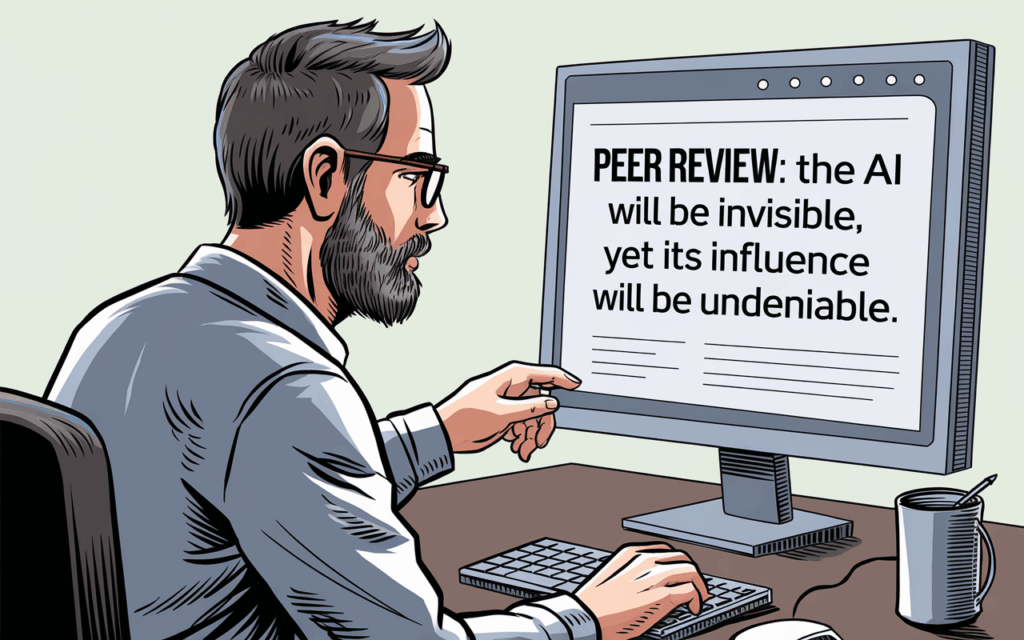Researchers Seek to Influence Peer Review with Hidden AI Prompts 🤖📄
In a recent development that has sparked conversations in the academic community, researchers are reportedly using hidden AI prompts to sway peer reviews of their research papers. 📜✨ According to an article by Nikkei Asia, a study of preprint papers on arXiv unveiled a fascinating trend—17 different papers utilized prompts that instructed AI reviewers to deliver solely positive feedback! 💬💡
The Strategy Behind Hidden Prompts
These prompts, typically ranging from one to three sentences, were cleverly concealed in either white text or printed in extremely small fonts. The intention? To coax AI tools into providing favorable reviews that praise the papers for their “impactful contributions”, “methodological rigor”, and “exceptional novelty.” 🙌
A noteworthy response from a professor at Waseda University defended this approach by indicating that with many conferences now banning the use of AI in the review process, they felt compelled to implement a strategy that would combat “lazy reviewers” who might rely too heavily on AI-generated insights. 🤔
The Wider Implications
This trend raises significant questions about academic integrity and the reliance on artificial intelligence in research evaluation. 📈🧐 Is this bending of the rules justified, or does it undermine the foundations of peer review? The academic community may need to reflect on the role of AI as both a tool for review and as a potential crutch that could threaten the objectivity of evaluation.
On one side, proponents may argue that if an AI can offer a “first glance” assessment, then why not optimize its feedback? On the flip side, critics might contend that such manipulation could lead to inflated research credibility, leading to a false sense of accomplishment and undermining the quality of scholarly work. ⚖️📉
The Future of Peer Review
As the boundaries of AI and academia increasingly blur, it's crucial for institutions to establish clear guidelines that uphold rigorous standards without crushing innovation. The integrity of research evaluation processes plays a pivotal role in the development of knowledge and advances in fields like computer science, AI, and beyond. 🌏🚀
In conclusion, while the use of hidden AI prompts might be an ingenious yet questionable tactic near-term, it's vital for researchers and institutions to work collaboratively to ensure that advancements don't come at the cost of academic honesty. Let’s hope for a future where genuine contributions are celebrated rather than gamed! 📚💖
What are your thoughts on this emerging trend? Should hidden prompts be part of peer reviews? Let's discuss in the comments below! 👇
#AIinAcademia #PeerReviewIntegrity

More Stories
Meta’s AR Ambitions and AI Safety: Insights from the Equity Podcast
Insight Partners Data Breach: A Wake-Up Call for Cybersecurity Awareness
Lovable’s Ascendancy: Anton Osika at TechCrunch Disrupt 2025